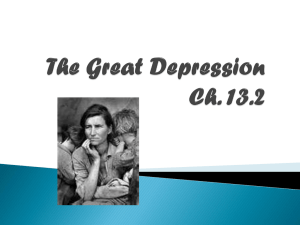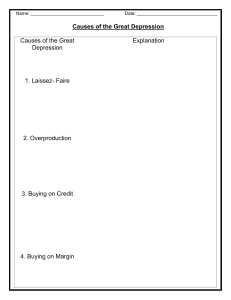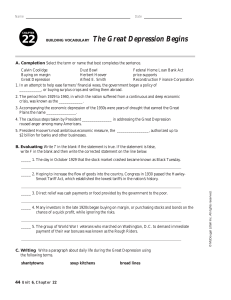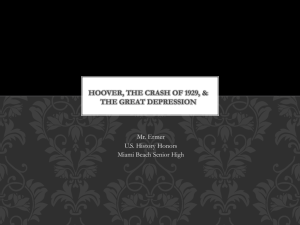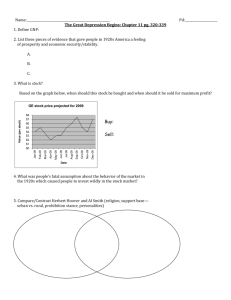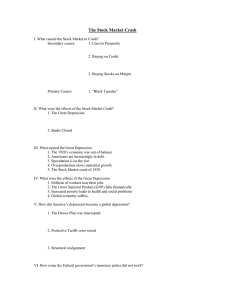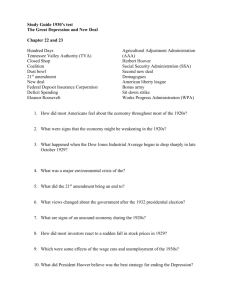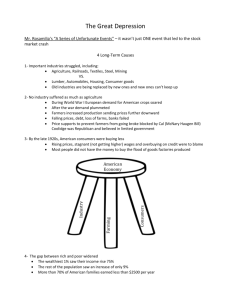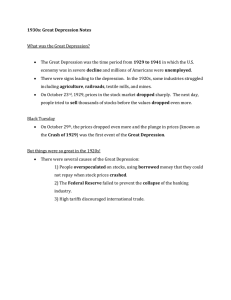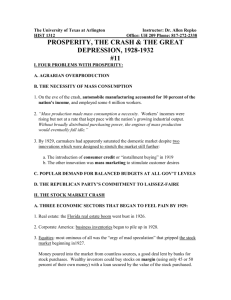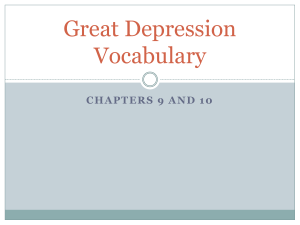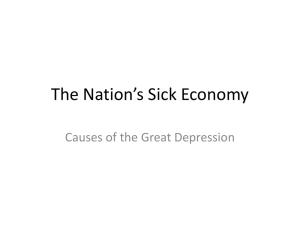14.1 The Nation`s Sick Economy
advertisement
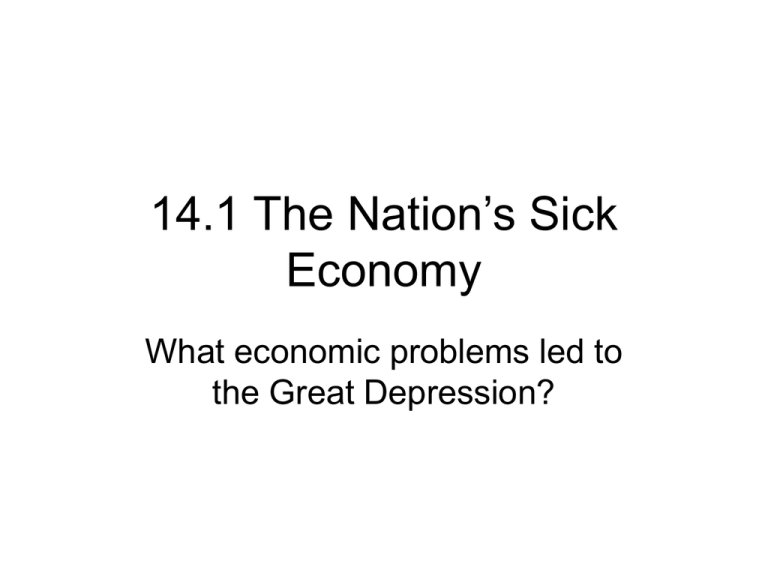
14.1 The Nation’s Sick Economy What economic problems led to the Great Depression? Economic Troubles on the Horizon • Even though the economy boomed during the 1920s, industries were actually barely making a profit • By the late 1920s, industries like auto manufacturing, construction, and consumer goods were losing money • The biggest problems were with farming; where demand for food dropped and farmers suffered • Many lost their farms b/c they couldn’t pay their mortgages Continued • Congress tried to help by passing price supports, where the government would not allow food prices to fall below a certain level; Coolidge vetoed the bill and their incomes continued to drop • People were also buying less, and prices rose faster than salaries • Many bought goods on credit, where consumers agree to make monthly payments with interest; similarly to today, people accumulated debt they couldn’t afford Hoover Takes the Nation • Few people recognized the problems with the economy in 1928 • Herbert Hoover defeated the Democratic challenger, Alfred E. Smith • The Dow Jones Industrial Average, which is a measure of 30 popular stocks, was way up at the time, and people were rushing to buy stocks • Many were engaging in speculation, buying risky stocks in hopes of a quick profit • To do that, they had to buy on margin, or pay a small down payment and borrow the rest The Market Crashes • Stock prices did begin to fall in September 1929 • On Tuesday, Oct. 29, 1929, or Black Tuesday, prices fell so sharply that people called it a ‘crash’ • People frantically tried to sell their shares, which drove prices down further, and no one was buying • Many lost all their savings • By mid-November, $30 billion had been lost Financial Collapse • The crash signaled the beginning of The Great Depression, a period of bad economic times where many were out of work that lasted from 1929 to 1940 • The crash didn’t cause the Depression, but it did make things worse • Banks suffered, and business began to close • The Depression was worldwide; America’s problems made the rest of the world’s worse Continued • The situation became worse when Congress passed the Hawley-Smoot Tariff Act, where Congress hoped that higher tariffs would push Americans to buy goods made in the U.S. and improve their industry • This only caused imports to decline, and Europeans had less to spend on U.S. goods Causes • Tariffs and war debt policies that cut down the foreign market for American goods • A crisis in the farm sector • The availability of easy credit • An unequal distribution of income
